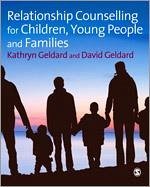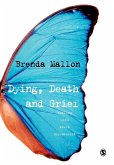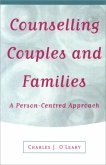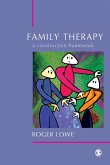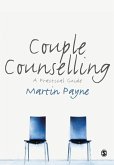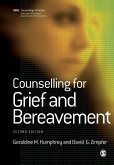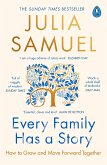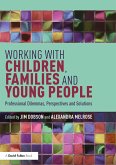"If you need one book that's crammed with clinically excellent, genuinely well informed and useful ideas for working with family relationships in all their permutations, this is undoubtedly it" - Professor Colin Feltham, Sheffield Hallam University
"This is easy to read and has a clear layout. Counselling MSc students may find it an interesting introduction to the topic" -
Times Higher Education Magazine, May 2009
This book is a practical skills-based introduction to relationship counselling. It covers couple counselling for parents, whole-family counselling and counselling for children and young people with regard to their relationships with siblings, peers and parents. The text also includes:
oan introduction to relationship counselling theory and concepts
odiscussion of the importance of relying on a clearly defined theory of change
oways to address parenting issues
oan exploration of confidentiality, disclosing inappropriate behaviour and personal safety.
Kathryn Geldard and David Geldard present an integrative model of relationship counselling which combines skills and strategies from a number of approaches. Their practical guide integrates individual and subgroup counselling with whole-family counselling, providing much-needed material on methods and approaches for communicating with children and young people.
The book will be invaluable to new relationship counsellors learning the skills required in order to bring about change, and will be a useful reference book for experienced counsellors.
"This is easy to read and has a clear layout. Counselling MSc students may find it an interesting introduction to the topic" -
Times Higher Education Magazine, May 2009
This book is a practical skills-based introduction to relationship counselling. It covers couple counselling for parents, whole-family counselling and counselling for children and young people with regard to their relationships with siblings, peers and parents. The text also includes:
oan introduction to relationship counselling theory and concepts
odiscussion of the importance of relying on a clearly defined theory of change
oways to address parenting issues
oan exploration of confidentiality, disclosing inappropriate behaviour and personal safety.
Kathryn Geldard and David Geldard present an integrative model of relationship counselling which combines skills and strategies from a number of approaches. Their practical guide integrates individual and subgroup counselling with whole-family counselling, providing much-needed material on methods and approaches for communicating with children and young people.
The book will be invaluable to new relationship counsellors learning the skills required in order to bring about change, and will be a useful reference book for experienced counsellors.

